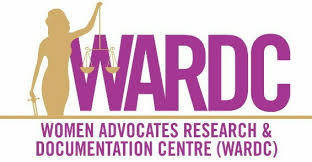The Women Advocates Research and Documentation Centre (WARDC) and other stakeholders on Friday called on all levels of government to prioritise the safety and security of schools across Nigeria by passing the Safe School Declaration (SSD) Bill into law.
Mrs. Jennifer Nwokedike, Coordinator of SSD, made this appeal during a roundtable with media executives focused on advocating for safer and more secure schools in Nigeria.
The Safe School project, led by WARDC and supported by the United Nations Democracy Fund, aims to ensure that Nigerian schools, particularly in vulnerable regions, remain safe and protected.
Nwokedike explained that the project’s core objective is to allow children to continue their education without fear of violence or attack.
She added that the project also seeks to raise public awareness of the SSD and hold the government accountable for enforcing safe school policies in the country.
“We have made significant progress, including raising awareness about SSD and creating a framework for its implementation,” Nwokedike stated.
The initiative has notably increased awareness of the SSD, especially in Lagos State, Bauchi, and Abuja. A framework to facilitate its actualisation is also in place, fostering stronger partnerships among stakeholders to ensure successful implementation.
On the status of the SSD Bill, Nwokedike reported that the bill had passed its first reading in the National Assembly and is awaiting further action. Additionally, the bill has completed readings in the Bauchi State House of Assembly and is nearing final approval. It is also awaiting presentation in the Lagos State House of Assembly.
Mrs. Mary George-Peluola, Director of Operations at WARDC, explained that the purpose of the roundtable was to address critical safety concerns affecting schools and strategize for effective advocacy. She highlighted the importance of the media’s role in promoting the Safe School initiative.
Mrs. Uche Okwuobi, Deputy Director of Research at the National Human Rights Commission, pointed out that ongoing attacks on schools violate children’s rights. “These attacks disrupt their education and inflict long-lasting psychological trauma on children, their families, and communities,” she said.
Dr. Bridget Osakwe, National Network Coordinator of the West Africa Network for Peacebuilding Nigeria, stressed that schools should be sanctuaries, not sites of fear. Represented by Mrs. Patience Obaulo, Head of Programs at WANEP, Osakwe noted that issues like violent attacks, bullying, drug abuse, and kidnapping have made many schools in Nigeria unsafe.
“A safe learning environment boosts academic performance, reduces dropout rates, promotes social and emotional growth, and encourages peaceful coexistence,” she added.
Osakwe also highlighted the significance of the Safe School Initiative, launched by the nation in 2014, grounded in three key pillars aimed at ensuring safer learning environments, improving school disaster management, risk reduction, and resilience education.
Dr. Lanre Arogundade, Executive Director of the International Press Centre, underscored the importance of the government taking concrete action to prioritize school safety and security. He advocated for a multi-stakeholder approach, involving security forces, community leaders, traditional rulers, and other stakeholders. He stressed that solutions to the problem must be tailored to address the unique challenges of different regions.
Arogundade called for greater collaboration between security agencies and the need for governments to allocate resources to ensure the safety of schools while developing effective solutions to the specific challenges they face.
(NAN)


